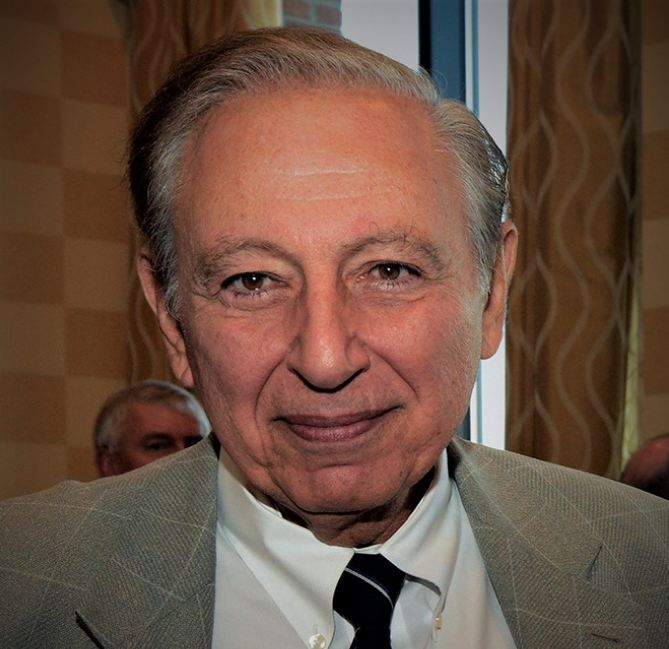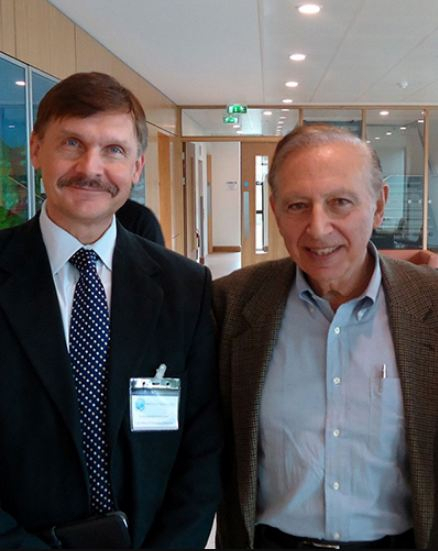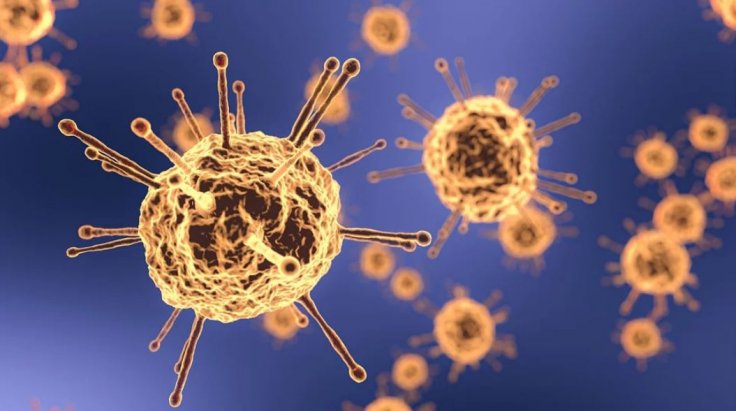There is a mad rush across the world to find a vaccine against the deadly COVID-19. The prospects of a viable candidate emerging any time soon, however, are not encouraging. In such a case, the next best thing is to find an effective way to keep the coronavirus at bay until a vaccine becomes available to the masses. World-renowned virologist, Dr. Robert Gallo, believes that the humble Oral polio vaccine (OPV) could be the temporary deterrent that we need.
Dr. Gallo is best known for his role in the discovery of the connection between the Human Immunodeficiency Viruses (HIV) and the disease it causes, Acquired Immune Deficiency Syndrome (AIDS), in 1984. Now, the virologist has teamed up with Dr. Konstantin Chumakov, Associate Director of Vaccines Research and Review, at the US Food and Drug Administration(FDA), to test their theory that OPV can provide temporary immunity against the tricky SARS-CoV-2 virus.
Their approach builds on research by Chumakov's parents, Russian virologists Dr. Mikhail Chumakov and Marina Voroshilova, in the 1970s in USSR, where OPV was found to be effective against influenza. Talking about employing this principle against COVID-19, Dr. Gallo said, "I strongly believe that it will work. I don't go out in a limb so easily. I don't think you have ever seen me go out on a big limb before. The data is there. It is in front of our face," in an interview.

The inspiration behind the idea
Dr. Gallo, who is the director of the Institute of Human Virology at the University of Maryland School of Medicine, narrated that the idea of using OPV to tackle the coronavirus came from conversations with Dr. Chumakov. In the 1970s, the Chumakovs discovered that among people who had received the OPV, the vaccine not only provided protection against polio but also against influenza.
" It protected against influenza even better than the developing vaccines that are specific for influenza that depend on time to develop the antibodies, et cetera, to be effective," he revealed in another interview
What is common between the two viruses is that both are RNA viruses. Therefore, protection against one extended to the other. It was found that there was nearly a four-fold reduction in influenza among people. The Chumakovs called it 'virus interference'.
When asked why this research remained 'buried' and unknown to US researchers, Dr. Gallo said, "We weren't talking to each other. You know, this is in the 1970s or early," speculating that the Cold War could have played a part in it. Also, the research was in Russian, and was translated much later, he added.

How does it work?
The virologist explained that the action of the OPV relied on the activation of a mechanism known as the 'innate immune system', which human beings share with invertebrates. Simply put, it is an emergency immune response that the body launches against a virus till antibodies are generated, and lymphocytes known as T lymphocytes or killer T cells are dispatched to fight the pathogen. The latter is known as the adaptive immune system.
Illustrating the mechanism, Gallo described, "The system doesn't wait for the adaptive immune response for antibodies, for killer T-cells that are specific to these proteins of the new virus. Rather it sees the foreign RNA and says, react. And it kicks in your innate immune system and says 'Now, give me the precise mechanism for that'."
Short-term immunity
Unlike the immunity that the mobilization of the adaptive immune system provides, the protection offered by the innate immune system is brief. In the case of the OPV, the immunity against polio lasts for a lifetime. The repurposing of the vaccine against the coronavirus to trigger the innate immune response could offer protection for at least a few months.

Offering an estimated duration for the prevalence of immunity, Gallo added, "We don't know how long this would last, this innate immune system lasts. It's variable in different things. But certainly, it would last -- it certainly should last for a month, maybe two months and maybe significantly longer."
Addressing safety and side-effects
Compared to the safety of drugs such as Hydroxychloroquine and Remdesivir that are being tested in trials, Dr. Gallo professed confidence over that of the OPV. Individuals who have already received the vaccination were at best, at a remote risk of having any side effects he added.
" It's like, if you're not vaccinated, there's 1 in 800,000 chance that something could go wrong. 1 in 800,000 people who got something," he opined about the possibility of unvaccinated individuals developing side effects.
Seeking FDA approval to commence trials
In another interview, when asked about the FDA's involvement, the scientist announced that the duo has approached the regulatory body with their proposal and paper, and is awaiting its response. "I cannot say that they have signed off yet. That would be presumptuous and would be misleading, and we have to wait for them (approval)," Dr. Gallo said.

In addition to this, they have also filed for an IND (Investigational New Drug) with the FDA, which in this case means the permission to study the application of an existing drug for a different purpose. "The IND that we are filing with them, the FDA, we are confident that it will be approved," he averred.
Dr. Gallo, who is also the co-founder and scientific director of the Global Virus Network (GVN), expressed that the duo wishes to make this immunization available to the high-risk category of the population such as healthcare professionals, transportation workers, and policemen, among others. "We hope to move this as fast as possible," he stated.









